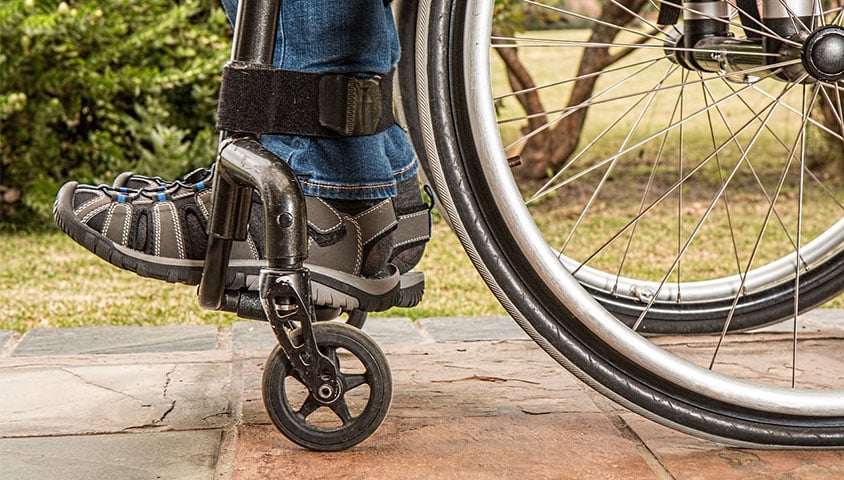
What is Personal Injury Litigation in Georgia?
Personal injury litigation is a legal process that arises when an individual, the plaintiff, seeks compensation from another party, the defendant, for injuries or damages sustained due to the defendant’s negligence or wrongful actions. These cases can encompass a wide range of situations, from car accidents and slip and fall accidents to medical malpractice and product liability.
Understanding the fundamentals of personal injury litigation is crucial for anyone who may find themselves involved in such a legal dispute, whether as a plaintiff seeking compensation or a defendant facing a claim. In this article, we will explore what personal injury litigation entails, the key elements of a personal injury case, and the steps involved in pursuing or defending against such a claim.
What is Personal Injury Litigation?
Personal injury cases are based on the concept of negligence, which means that the defendant failed to exercise reasonable care, leading to the plaintiff’s injuries. They aim to provide compensation to the injured party (the plaintiff) for their losses, which can include medical expenses, lost wages, pain and suffering, and other damages.
Key Elements of a Personal Injury Case
To establish a successful personal injury claim, several key elements must be present:
- Duty of Care: The first element is establishing that the defendant owed the plaintiff a duty of care. This duty of care varies depending on the circumstances. For example, drivers owe a duty of care to operate their vehicles safely, and healthcare providers owe a duty of care to provide appropriate medical treatment.
- Breach of Duty: The plaintiff must show that the defendant breached their duty of care. This means that the defendant’s actions or negligence fell below the standard of care expected in the given situation.
- Causation: It must be proven that the defendant’s breach of duty was the direct cause of the plaintiff’s injuries. In other words, the injuries would not have occurred without the defendant’s actions or negligence.
- Damages: Finally, the plaintiff must demonstrate that they suffered actual damages as a result of the defendant’s actions. These damages can include medical bills, lost income, pain and suffering, and more.
Steps in Personal Injury Litigation
Personal injury litigation involves a series of steps, from the initial incident to resolution. Here is an overview of the typical process:
- Incident and Injury: The process begins with an incident that causes injury or harm to the plaintiff. This could be a car accident, a slip and fall, a workplace accident, or any other situation where negligence or wrongful actions come into play.
- Seeking Medical Treatment: The injured party should seek prompt medical attention. Not only is this crucial for their health, but it also helps establish a record of the injuries sustained.
- Consulting an Attorney: If the injured party believes they have a valid personal injury claim, they should consult an experienced personal injury attorney. The attorney will assess the case’s merits and guide the plaintiff through the legal process.
- Filing a Lawsuit: If a settlement cannot be reached through negotiations with the defendant’s insurance company, the next step is to file a lawsuit. This initiates the formal legal proceedings.
- Discovery: During the discovery phase, both parties exchange information and evidence related to the case. This may include documents, witness statements, and depositions.
- Negotiation or Mediation: Before going to trial, many personal injury cases are resolved through negotiation or mediation. This can lead to a settlement agreement that compensates the plaintiff without the need for a trial.
- Trial: If a settlement cannot be reached, the case proceeds to trial. Both parties present their evidence and arguments, and a judge or jury determines the outcome.
- Verdict and Appeals: After the trial, a verdict is reached. If either party is dissatisfied with the verdict, they may choose to appeal the decision.
Personal injury litigation is a complex legal process designed to provide compensation to individuals who have suffered injuries or damages due to another party’s negligence or wrongful actions. To succeed in a personal injury case, it is essential to establish key elements such as duty of care, breach of duty, causation, and damages. The process involves several stages, including seeking medical treatment, consulting an attorney, filing a lawsuit, discovery, negotiation or mediation, trial, and potential appeals.
Understanding personal injury litigation is crucial for both plaintiffs seeking compensation and defendants defending against claims. It ensures that injured parties have a means to seek redress for their losses and encourages responsible behavior by holding negligent parties accountable for their actions.
If you find yourself involved in a personal injury case, contacting our personal injury attorney is essential to navigating the complexities of the legal system and maximizing your chances of a favorable outcome.



